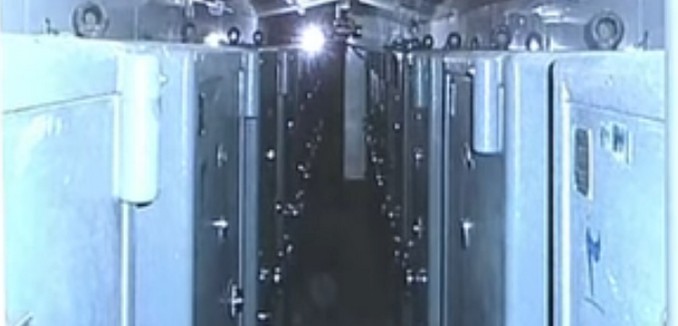The documents in an archive seized by Israel show that Iran had “more advanced capabilities to make nuclear weapons themselves,” according to a paper being prepared by an anti-proliferation think tank, Foreign Policy reported Tuesday.
Foreign Policy, which saw an early draft of the paper being produced by the Institute for Science and International Security — written by the Institute’s president, former weapons inspector David Albright, former Deputy Director General of the International Atomic Energy Agency (IAEA), and Andrea Stricker, a senior policy analyst at the institute — reported that the information contained in the archive “demonstrates that Washington and the IAEA were constantly underestimating how close Tehran was to a bomb.”
Though the deal was meant to limit Iran’s ability to highly enrich uranium to fuel a nuclear bomb, the archive shows that Iran had also developed the capabilities “to make the nuclear weapons themselves.” This aspect of the archive is described as “a surprising and troubling finding in the new intelligence.”
“The archive is littered with new stuff about the Iranian nuclear weapons program,” Albright said. “It’s unbelievable how much is in there.” Based on what he has learned from reviewing the documents in the archive, he said that the Iranians “were further along than Western intelligence agencies realized.”
Albright noted that though the United States government believed that it would take Iran two years to build a nuclear weapon, “the information in the archive makes it clear they could have done it a lot quicker.”
The documents and files that Israel smuggled out of Tehran in January, and which Israeli Prime Minister Benjamin Netanyahu publicized at the end of April, consists of some 100,000 pages and covers Iran’s nuclear weapons program during the years of 1999 to 2003.
The haul is so massive that Albright said that “I don’t think even the Israelis have gone through it all.” He added that “every day when they go through it they see something new.”
In a previous paper published by the institute, Albright, Heinonen, and Frank Pabian, a former United Nations Nuclear Chief Inspector in Iraq for the IAEA, argued that the new information contained in the archive “necessitates calling for more action by the IAEA and the Joint Commission, which administers the Joint Comprehensive Plan of Action (JCPOA).”
In an op-ed published last month in The Hill, Josh Block, the President and CEO of The Israel Project, noted that the IAEA had failed to follow through on the recent Israeli revelations and the implications of those failures on the agency’s overall knowledge of Iran’s nuclear weapons work.
“The gaps in the IAEA’s knowledge — of Iran’s past nuclear work, of its military sites, of items mentioned in Section T of the nuclear deal, and of the nuclear sites discovered by Israeli intelligence — raise questions about the full extent of Iran’s nuclear program,” Block argued.
[Photo: IsraeliPM / YouTube]




